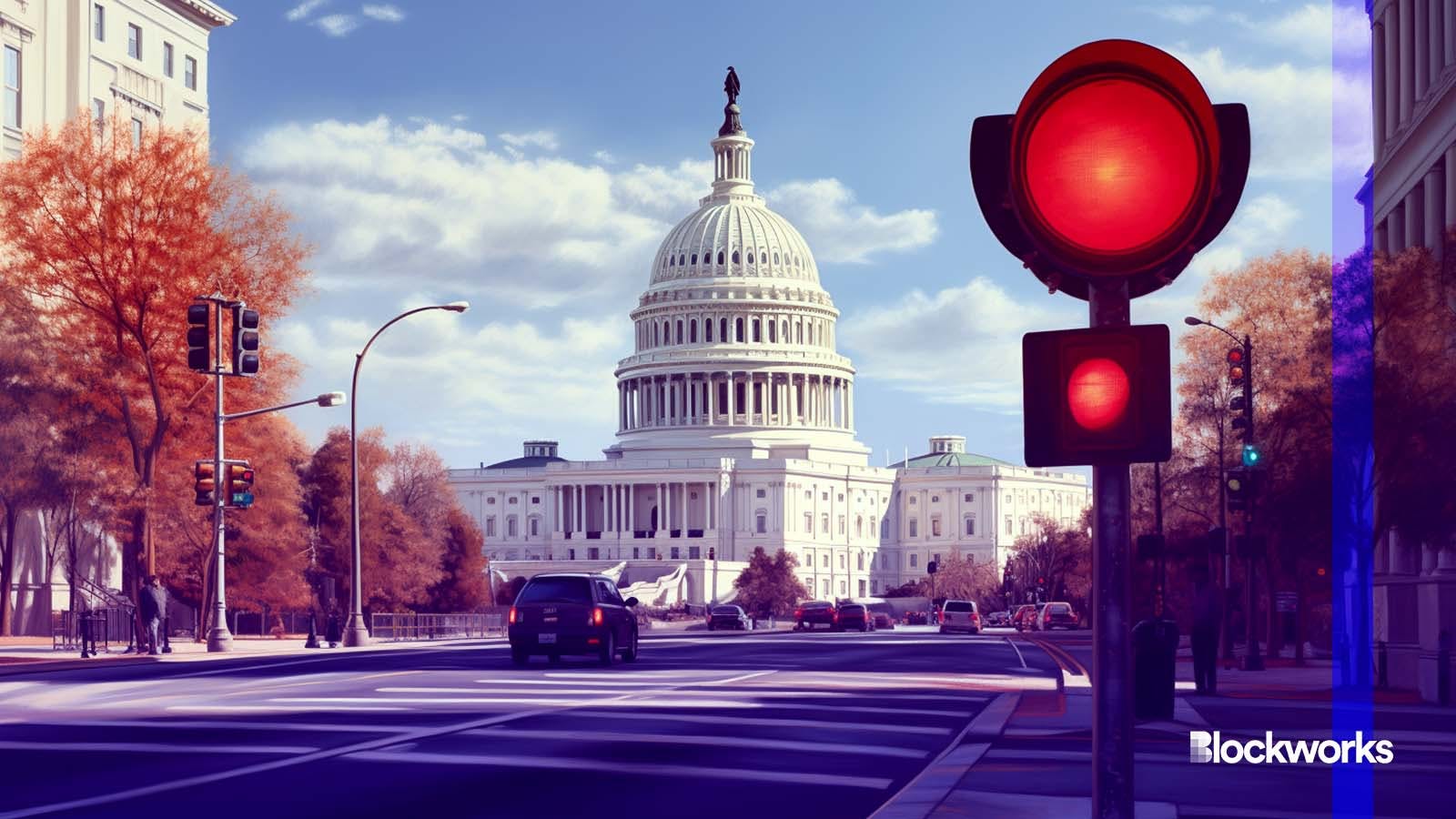Dear senators, don’t drive crypto miners, validators and more out of the US
Your support of this new digital asset AML bill jeopardizes your constituents’ jobs, finance and future

Midjourney modified by Blockworks
Dear Senators,
As a representative of the digital asset and blockchain industry, I write this letter to urge you to reconsider your position on the Digital Asset Anti-Money Laundering Act.
This proposed bill is designed to strip away the security layer from digital asset transactions, which are engineered to offer your constituents faster, more cost-effective solutions and serve as a shield against inflation. By potentially driving these critical security providers offshore, the bill risks destabilizing the progress and reliability that digital assets bring to the US economy — this would be perilous for US consumers and investors.
These are your constituents, and your support of this bill jeopardizes their jobs, finances and future.
I have no interest in debating the facts and data regarding the extent that digital assets contribute to money laundering and illicit finance broadly. Due to the public nature of the blockchain, those numbers can be understood by all, but most importantly law enforcement, and have been tirelessly debated for weeks. Regardless of the data, we agree wholeheartedly that the intended goal should be zero — zero contribution of digital assets towards illicit finance and criminal activity. We stand side-by-side with your efforts to improve the security of this industry and have been pleading with your colleagues who drafted this bill for months to create something constructive to protect Americans.
This bill misses this critical opportunity. We are concerned that expanding the Bank Secrecy Act to designate non-financial entities as financial institutions is a gross overreach of power.
Designating entities (e.g. bitcoin miners, validators, unhosted wallet providers) as financial institutions is technologically unfeasible, as they do not custody consumer funds or generally interact with consumers. Moreover, miners and validators are the backbone of blockchain security, rigorously scrutinizing and authenticating transactions to safeguard the network’s integrity, thus facilitating secure and trustworthy peer-to-peer exchanges. Designating them as financial institutions when they are not will drive these essential players overseas, significantly undermining the security of these networks to the detriment of your constituents.
There is a fundamental question that has been answered by nearly every jurisdiction around the world (allies and adversaries alike), except the US: Should digital assets exist? US consumers, Fortune 500 companies, allied nations all say yes. This bill indicates that you say no.
We plead with you to reconsider your support for this direct attack on your constituents’ jobs, finances and safety. Additionally, I urge the industry to be vigilant in our effort to prevent illicit finance and continue to serve as a resource for policymakers to get this right for the security of our nation, rather than stand as an impediment to safety.
We are ready to not just say “no, no, no” but work with you on constructive solutions. We hope you will take us up on this for your constituents and the country.
Get the news in your inbox. Explore Blockworks newsletters:
- The Breakdown: Decoding crypto and the markets. Daily.
- 0xResearch: Alpha in your inbox. Think like an analyst.






